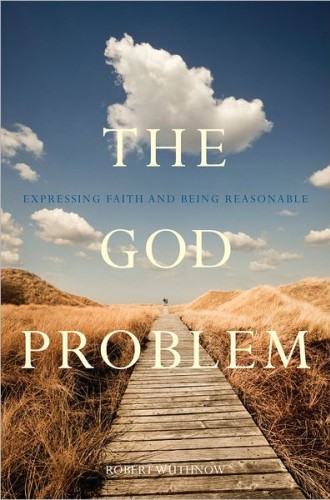How we talk about God
For nearly four decades, Princeton University sociologist Robert Wuthnow has proved himself to be an indispensable and unwaveringly astute guide to America’s variegated, ever-shifting religious landscape. Generational changes and religious socialization, money and work, religious diversity and culture wars, the promise and perils of religious institutions, volunteerism and civic organizations, music and the arts, small groups and community, regional and global connections—even a cursory listing of his books’ topics indicates that he has left little of this terrain unexplored. And yet with each new foray therein, he comes equipped with what his colleague Peter Berger once called the first wisdom of sociology: “Things are not what they seem.”
Such is the case with The God Problem. Based largely on conversations that Wuthnow’s research team had with 165 middle-class Americans about God and faith, it advocates and peerlessly demonstrates the importance of listening closely. It may seem to some observers, especially those who believe in American exceptionalism, that religious faith comes relatively easily to most Americans. To others, such as the so-called new atheists, faith seems instead to be increasingly untenable for educated people. But the careful listener will discover that things are not what they seem. Most Americans are quite religious, says Wuthnow, but they also have a “God problem”: in today’s pluralistic context, they must do the cultural work of consolidating and articulating their faith in ways that do not come off as either unacceptably dogmatic or as unenlightened.
How should we interpret this problem? Does it generate a kind of religion lite—a watered down, domesticated version of faith? It may seem so to those bent on comparing the present situation with that of a golden, romanticized past. Or is it an unresolvable problem that points to an inevitable religionless future in which the dubiousness of theological claims comes to be more widely acknowledged? This may seem about right to observers who equate modernization with nothing more than secularization. But, once again, for Wuthnow things are not what they seem. Where others detect less authentic religion or the waning of religion, he leans in more closely, listens more intently and hears example after example of religion’s adaptability.






